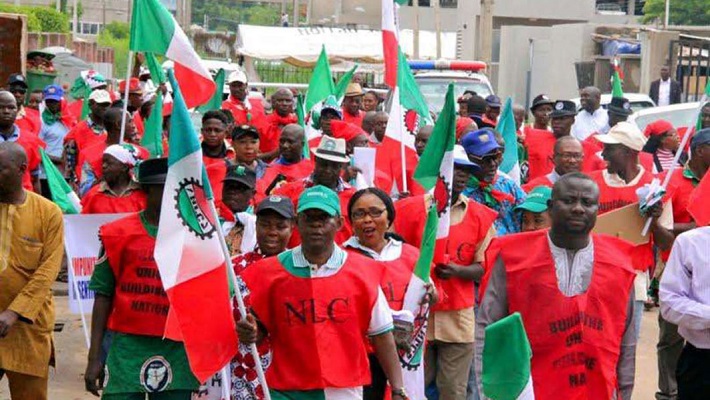With two days to go, the Nigeria Labour Congress is hell-bent on a two-day warning strike over the effects of the removal of fuel subsidy on Nigerians.
The strike is set to begin on Tuesday, the 5th of September, to protest against the Federal Government’s shortcomings in addressing the challenges that are being faced by Nigerians due to subsidy removal.
The NLC President, Joe Ajaero, made this pronouncement while speaking on resolutions by the NLC National Executive Committee (NEC) meeting the previous day, during a press conference on Friday at the Labour House in Abuja.
The Federal Government is being accused by the labour union of giving up on negotiations and not carrying out some of the decisions made at earlier sessions with the government.
On May 29, President Bola Ahmed Tinubu, in his inaugural speech, announced the removal of fuel subsidy. This immediately resulted in a spike in fuel prices, as well as the price of transportation and other amenities in Nigeria.
This led the organised labour to, on the 2nd of August, protest against what it called the anti-people policies of Tinubu’s administration.
The NLC and the Trade Union Congress (TUC) and their affiliate unions protested in the Federal Capital Territory (FCT) and several states, including Lagos, Abia, Plateau, Kaduna, Kano, Rivers, Zamfara, Katsina, Cross River, Ebonyi, Enugu, Kwara, Ogun, Imo, Ondo, and Edo.
After the protest, the organised labour groups issued a seven-day ultimatum to the government demanding “the immediate reversal of all anti-poor policies of the federal government including the recent hike in PMS (Premium Motor Spirit) price, increase in public school fees, the release of the eight months withheld salary of university lecturers and workers.”
The union also called for an increase in the minimum wage from N30,000 to N200,000, claiming that since the President’s “subsidy is gone” inaugural address on May 29, 2023, Nigerians have lost their sense of security.
The Presidency and the unions held many sessions to discuss relief measures for Nigerians who are struggling economically as a result of the elimination of the petrol subsidy, however, the sessions proved abortive.

